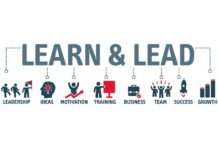For many, AAT Level 4, and the eventual progression through the various AAT memberships, is the highest academic accounting qualification they need to reach to achieve their professional goals. Others, however, use the AAT qualifications and memberships as a stepping stone on the path to becoming a fully registered chartered accountant. Today we’ll briefly discuss one possible route from AAT to chartered accountant status, and the roles open to those with chartered status.
AAT-ACA Fast Track
Through the Institute of Chartered Accountants for England and Wales (ICAEW), AAT students can take a fast track route to becoming a chartered accountant. To begin the fast track route, you must first achieve an AAT Professional Diploma in Accounting (Level 4). By finishing the AAT Level 4 Certificate, you will have gained credit towards several ACA Certificate in Accounting modules.
After registering as a student with the ACA, you will begin studying the Certificate Level modules of the ACA, followed by the Professional Level and, finally, the Advanced Level. Upon completion of all examinations and necessary work experience, you will have gained chartered accountant status.
Roles for Chartered Accountants
Once you’ve gained chartered accountant status, a completely new group of industries and roles will become available. The scope for chartered accountant work is wide, so we’ll cover just a few examples below.
Audit and Assurance
A good auditor can help turn a struggling company into a healthy, competitive business. As a chartered level auditor, you’ll have the responsibility of checking a business is legally complying with accounting laws. Businesses can also choose to have an independent audit conducted to highlight any areas that could be made more profitable. Instead of a purely accounting-based role, auditors are challenged with understanding business decisions and advising on future choices for a business.
Generally speaking, auditors are great communicators. They deal directly with clients regarding, sometimes, difficult topics. Legal audits are necessary for each and every business in the UK, making this a particularly broad role in terms of who you could be working with.
Business
As a chartered accountant, you’ll have the opportunity to work at the financial centre of many businesses as an in-house accountant. Being in a senior position, you could help shape the business decisions of senior management through data analysis and detailed financial forecasts. You’ll spot trends within the business’ market where there’s potential for growth.
This type of role is ideal if you want to focus on a particular industry.
Forensic Accounting
Accounting shares many similarities with detective work and never is that truer than in forensic accounting. As a chartered accountant, you’ll be able to apply for forensic accounting positions. You could be investigating a global money laundering scheme, unearthing a key piece of information in a fraud case or discovering a source of criminal funding.
The breadth of forensic accounting roles is huge. You could be investigating a global network of connections and looking for patterns that indicate wrongdoing. You’ll have an extremely keen eye for detail and be tasked with creatively piecing together complex financial processes. Having an active interest in law is somewhat of a prerequisite for a role in forensic accounting.
Interested in finding out how you can progress from AAT to Chartered Accountant (and beyond)? Contact Aspiring Accountants today and talk to one of our advisors about your possible career paths.



















